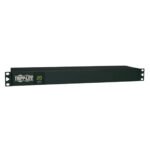What Homeowners Should Know About Low Voltage Wiring Costs

Have you ever wondered why your neighbor’s home security system or smart lighting works seamlessly while yours struggles with glitches? The secret often lies in the quality of the low-voltage wiring installed. If you’re planning to upgrade your home’s technology, it’s essential to understand what goes into low-voltage wiring costs and why hiring low voltage wiring contractors is a smart investment.
What is Low Voltage Wiring?
Before diving into the costs, let’s clarify what low-voltage wiring is. Unlike standard electrical wiring that powers your home’s lights and appliances, low-voltage wiring carries less power. This type of wiring is typically used for systems like:
- Home security cameras
- Smart doorbells
- Surround sound systems
- Internet and network cabling
- Smart lighting and automation
Low-voltage wiring helps keep your home’s technology running efficiently without overloading the main electrical system. While it sounds technical, think of it as the hidden network that keeps all your gadgets connected and communicating smoothly.
Why Low Voltage Wiring Matters for Homeowners
Imagine your security cameras losing connection or your Wi-Fi dropping every time you have a video call. Frustrating, right? Proper low-voltage wiring makes a big difference in the performance and reliability of your home’s smart systems. Many homeowners overlook this part, thinking it’s just about “running a few cables.” However, poorly installed wiring can lead to expensive troubleshooting and system upgrades later.
Understanding Low Voltage Wiring Costs
So, how much will it cost to install low-voltage wiring in your home? The answer isn’t straightforward because low voltage wiring costs depend on several factors, including:
- Size of the Project: The number of systems you want to install will significantly impact the overall cost. Setting up a single home security camera might be affordable, but adding smart lighting, surround sound, and network cabling will increase expenses.
- Type of System: Different systems require different types of wiring. For example, network cabling for high-speed internet may cost more than basic wiring for a doorbell camera.
- Labor and Expertise: Choosing professional low-voltage wiring contractors will add to the cost, but it’s worth the investment. Certified contractors ensure that the installation is done correctly, reducing the risk of future issues.
- Materials Used: High-quality cables and connectors can add to the budget, but they guarantee better performance and longevity.
Let’s break down some average costs to give you a clearer idea:
- Home Security System Wiring: Expect to pay between $200 to $500 per camera, depending on the complexity of installation and the quality of materials used.
- Network Cabling: The cost of a standard home network setup can range from $1000 to $3000, depending on the size of the home and the number of devices.
- Smart Lighting and Automation: The wiring for smart lighting systems generally costs between $500 and $2000, depending on the scope of the project.
Why Hire Professional Low Voltage Wiring Contractors?
Cutting corners can lead to a tangled mess and performance issues when installing low-voltage wiring. Professional low-voltage wiring contractors bring expertise, proper tools, and experience. Here’s why hiring experts is crucial:
- Safety Compliance: Improper installation can lead to safety hazards or even void warranties on your expensive equipment. Professionals follow industry standards to ensure safe and secure installations.
- Efficiency and Quality: Certified contractors ensure that each wire is correctly placed, labeled, and connected, reducing the chances of system malfunctions in the future.
- Future-Proofing: Technology evolves quickly. Skilled contractors can suggest wiring setups that accommodate future upgrades, saving you from tearing open walls down the road.
Factors to Consider When Budgeting for Low Voltage Wiring
If you’re planning a home renovation or want to upgrade your current systems, it’s smart to budget ahead. Here are a few tips to keep in mind:
- Assess Your Needs: Determine which systems you want—home security, internet cabling, or smart lighting—and plan accordingly.
- Get Multiple Quotes: Don’t settle for the first contractor you come across. Compare rates and services offered by different low voltage wiring contractors.
- Factor in Upgrades: If you’re future-proofing your home, consider wiring that can support upgrades like faster internet speeds or additional security cameras.
- Think Long-Term: Opting for cheaper materials might save you money now, but investing in high-quality cables and professional installation will save you headaches (and costs) in the long run.
Common Mistakes to Avoid
It’s easy to make mistakes when planning for low-voltage wiring, especially if you’re unfamiliar with the details. Here are some common pitfalls:
- Choosing Inexpensive Materials: Low-cost cables might not support the technology you have in mind or may degrade faster, leading to replacements sooner than expected.
- DIY Installation: Low voltage wiring might seem simple, but doing it yourself can lead to poor connections, signal loss, and potential damage to expensive devices.
- Skipping Professional Help: Even if you’re tech-savvy, the expertise of certified low-voltage wiring contractors is invaluable for ensuring smooth, trouble-free performance.
What to Expect During Installation
When you hire a professional contractor, the installation process is straightforward. Typically, the steps include:
- Assessment and Planning: The contractor will review your home’s layout, and your system needs to create a customized plan.
- Wiring Installation: Depending on your setup, cables will be run through walls, ceilings, or floors. This is often the most labor-intensive part of the job.
- Testing and Troubleshooting: Once everything is in place, the contractor will test each system to ensure it’s functioning correctly. This step is crucial for identifying any issues before wrapping up.
- Final Walkthrough: After installation, the contractor will walk you through the setup, explaining how each system works and answering any questions.
Final Thoughts
Understanding low-voltage wiring costs is key to planning your home’s technology setup. Whether you’re looking to enhance your home security, set up a seamless network, or automate your lighting, investing in quality wiring and experienced low-voltage wiring contractors is always a good idea.
If you’re ready to upgrade your home’s wiring and ensure all your systems work flawlessly, contact Cabling Drops—a trusted low-voltage wiring contractor serving Pennsylvania and New Jersey. Contact us today to discuss your project and get a customized quote tailored to your needs!






